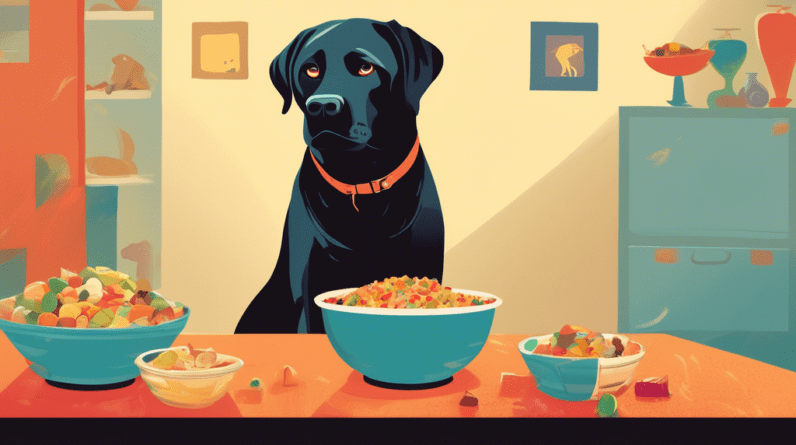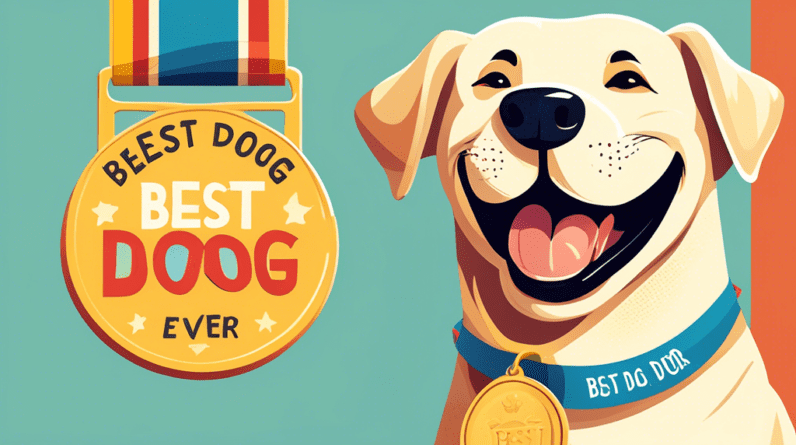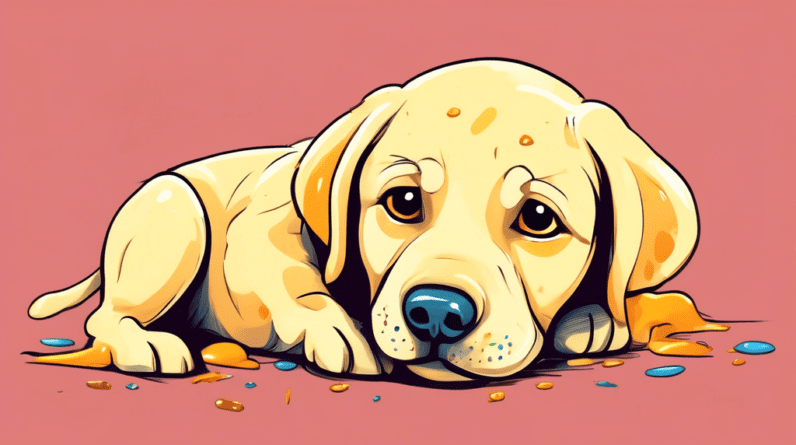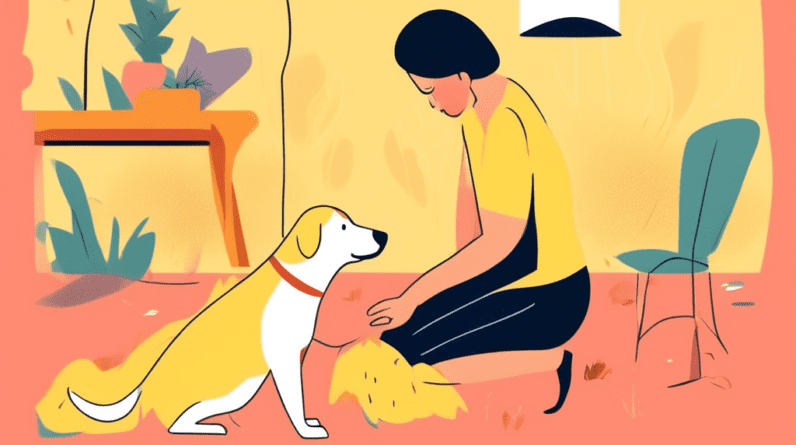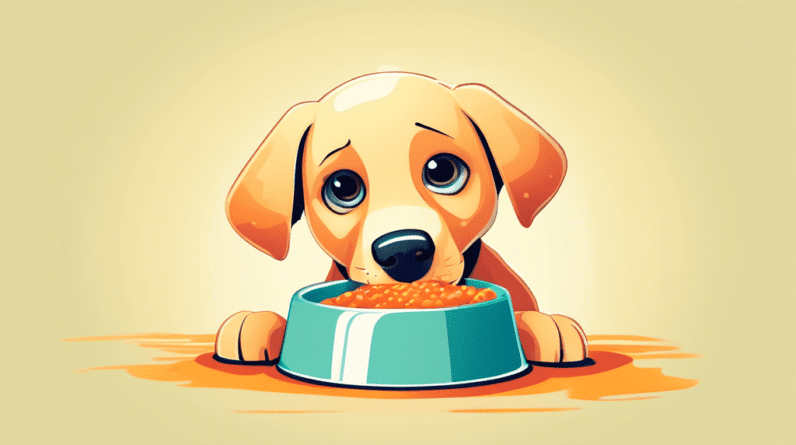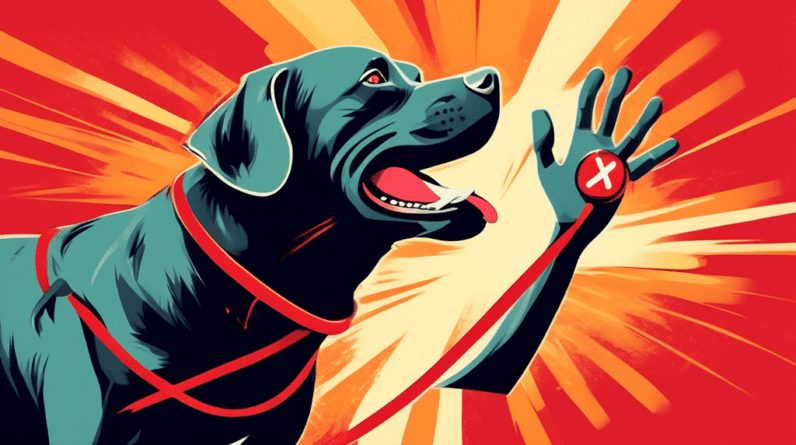
Understanding Labrador Aggression: It’s Not Always What It Seems
Labrador Retrievers, with their wagging tails and infectious enthusiasm, are renowned for their friendly nature. They’re often the epitome of a family dog, known for their gentle demeanor and love for everyone, especially children. However, even the most amiable Labrador can display aggression, leaving owners perplexed and concerned. It’s crucial to remember that aggression is a complex behavior with multifaceted roots, and understanding the underlying causes is key to addressing the issue effectively.
Unraveling the Triggers: What Makes a Labrador Aggressive?
While the image of an aggressive Labrador might seem jarring, it’s essential to understand that aggression is a symptom, not the problem itself. Several factors can contribute to aggressive behavior in Labradors:
1. Medical Conditions: The Silent Contributors
Often, the root of a Labrador’s aggression lies in an underlying medical condition. Pain, discomfort, and hormonal imbalances can significantly impact their behavior. Here’s a closer look:
a) Pain and Discomfort:
Imagine experiencing a persistent headache or a throbbing toothache. Now, envision not being able to communicate your discomfort except through behavioral changes. That’s often the case with dogs. Arthritis, hip dysplasia, ear infections, dental problems, and other ailments can cause significant pain, making your usually affable Labrador irritable and prone to snapping.
b) Hormonal Imbalances:
Hormones play a crucial role in regulating behavior, and imbalances can lead to noticeable shifts in temperament. Hypothyroidism, a condition characterized by an underactive thyroid gland, can cause increased anxiety, fear, and aggression in Labradors.
c) Neurological Disorders:
While less common, neurological disorders can also contribute to aggression. Conditions affecting the brain can alter behavior patterns, leading to uncharacteristic aggression, even in the gentlest of Labradors.
2. Fear and Anxiety: The Driving Forces Behind Defensive Aggression
Like humans, Labradors can experience fear and anxiety, often manifesting as defensive aggression. This behavior is their way of protecting themselves from perceived threats. Several factors can trigger fear and anxiety:
a) Lack of Early Socialization:
Early socialization is crucial for Labradors. Puppies not adequately exposed to various sights, sounds, people, and other animals during their formative weeks may develop anxieties and fears later in life, leading to defensive aggression in unfamiliar situations.
b) Traumatic Experiences:
Past trauma, such as abuse, neglect, or a dog attack, can leave lasting emotional scars. Labradors who have endured trauma may exhibit fear-based aggression, especially in situations or around individuals that remind them of the traumatic event.
c) Cognitive Decline:
As Labradors age, cognitive decline, similar to dementia in humans, can set in. This decline can cause confusion, disorientation, and anxiety, leading to increased fear and potentially, aggression.
3. Resource Guarding: Protecting What’s Theirs
Resource guarding is an instinctive behavior in dogs, including Labradors. It involves protecting valued resources, such as food, toys, beds, or even their human companions. While a mild form of resource guarding is normal, extreme cases can result in aggression.
a) Food Aggression:
Labradors displaying food aggression may growl, snap, or bite if approached while eating. This behavior stems from a fear of having their food taken away.
b) Toy Possessiveness:
Some Labradors become possessive of their toys, exhibiting aggression if someone, especially a child, tries to touch or take their prized possession.
4. Frustration and Boredom: The Perils of Pent-Up Energy
Labradors are high-energy dogs bred for work. Lack of sufficient physical exercise and mental stimulation can lead to frustration and boredom, often manifesting as destructive behavior and aggression.
a) Lack of Exercise:
Labradors need a healthy dose of daily exercise, both physical and mental. Without it, their pent-up energy can turn into frustration, leading to behavioral issues, including aggression.
b) Insufficient Mental Stimulation:
Labradors are intelligent dogs that thrive on mental challenges. Puzzle toys, interactive games, and obedience training can provide the mental stimulation they crave. Without it, they can become bored and frustrated, increasing the likelihood of unwanted behaviors.
5. Genetics and Breeding: The Role of Lineage
While less common in Labradors than in some other breeds, genetics can play a role in aggression. Puppies from lines with a history of aggressive tendencies may be more predisposed to exhibit such behavior.
a) Responsible Breeding Practices:
Reputable breeders prioritize temperament testing and carefully select breeding dogs to minimize the risk of passing on aggressive traits.
Recognizing the Signs: Is Your Labrador Showing Aggression?
Recognizing the subtle signs of aggression is crucial for early intervention. Labradors often communicate their discomfort and anxiety through body language before resorting to biting. Here are some red flags to watch for:
Subtle Signs:
- Yawning when not tired
- Lip licking
- Whale eye (showing the whites of their eyes)
- Stiffening of the body
- Turning their head away
Escalated Signs:
- Growling
- Snapping
- Baring teeth
- Lunging
Addressing Labrador Aggression: A Multifaceted Approach
Addressing aggression in Labradors requires a multi-pronged approach, tailored to the underlying cause. It’s essential to consult with a veterinarian and a certified professional dog trainer or behaviorist to develop a comprehensive plan.
1. Veterinary Check-up: Ruling Out Medical Causes
The first step is to schedule a thorough veterinary check-up. Your veterinarian will assess your Labrador’s overall health, conduct necessary tests, and rule out any underlying medical conditions contributing to the aggression. Addressing any medical issues is crucial, as it often resolves or significantly improves behavioral problems.
2. Professional Behavior Modification: Addressing the Root Cause
Working with a certified professional dog trainer or behaviorist specializing in aggression is essential. They can help you identify the triggers for your Labrador’s aggression and develop a customized behavior modification plan. These plans often involve:
a) Desensitization and Counter-Conditioning:
This technique involves gradually exposing your Labrador to the triggers that cause aggression, pairing the exposure with positive reinforcement, such as treats and praise. The goal is to change their emotional response to the trigger from fear or anxiety to a more positive association.
b) Positive Reinforcement Training:
Rewarding desired behaviors helps reinforce good conduct and build a stronger bond between you and your Labrador. Positive reinforcement techniques, such as clicker training, focus on rewarding good behavior, making training enjoyable for both of you.
c) Environmental Management:
Sometimes, managing your Labrador’s environment can significantly reduce triggers and prevent aggressive outbursts. This may involve:
- Feeding your Labrador in a separate area to minimize food aggression.
- Providing a safe space, such as a crate, where they can retreat when feeling overwhelmed.
- Avoiding situations that you know trigger their anxiety or aggression.
3. Medication: In Conjunction with Behavior Modification
In some cases, your veterinarian may recommend medication in conjunction with behavior modification to address your Labrador’s aggression, especially if it’s related to anxiety or fear. Anti-anxiety medications can help reduce their overall anxiety levels, making them more receptive to behavioral interventions.
Safety First: Protecting Yourself and Others
While working on addressing your Labrador’s aggression, prioritizing the safety of yourself, your family, and others is crucial. Here are some essential safety tips:
- Avoid putting your Labrador in situations that trigger their aggression.
- Never leave young children unsupervised with a dog, especially one exhibiting aggressive tendencies.
- Use a muzzle if necessary, especially in situations where biting is a concern.
- Consult with a professional trainer or behaviorist for guidance on safely managing your dog’s behavior.
Preventing Aggression: A Proactive Approach
Prevention is always better than cure. Implementing these strategies from puppyhood can significantly reduce the risk of aggression in your Labrador:
- Early Socialization: Expose your Labrador puppy to various sights, sounds, people, and other animals during their critical socialization period (up to 16 weeks of age).
- Positive Reinforcement Training: Start with basic obedience training early on, focusing on positive reinforcement techniques.
- Sufficient Exercise and Mental Stimulation: Provide your Labrador with ample opportunities for physical exercise and mental enrichment. Daily walks, playtime, interactive games, and training sessions are crucial.
- Recognize and Respect Their Limits: Pay attention to your Labrador’s body language and learn to recognize signs of stress, fear, or anxiety.
Conclusion: A Journey of Patience, Understanding, and Professional Guidance
Dealing with aggression in your Labrador can be challenging, but it’s not insurmountable. By understanding the underlying causes, seeking professional help, and implementing a tailored behavior modification plan, you can help your furry companion regain their composure and enjoy a happier, more harmonious life. Remember, patience, consistency, and professional guidance are key to successfully addressing aggression and strengthening the bond you share with your beloved Labrador.

